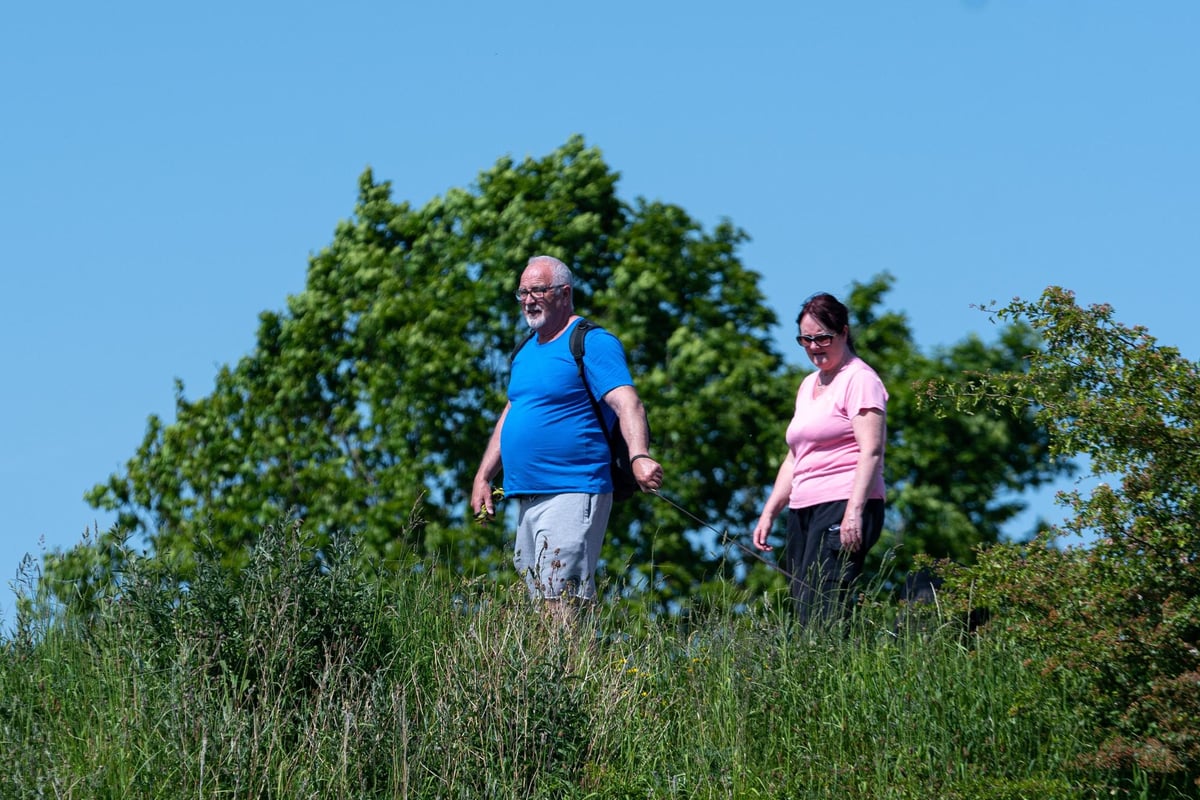Bolton’s most senior judge is retiring with a warning about the hard times the system faces and words of encouragement for his successor. His Honour Judge Martin Walsh has served as the Honorary Recorder of Bolton since 2018 and will be hanging up his wig and gown for the last time at the start of next month. Looking back on decades in the legal profession he did not shrink from the challenges that lie ahead for the criminal justice system.
Judge Walsh said: “Its not only defendants, its complainants, many of whom are victims, and witnesses, all of whom want to have their day in court. “And I don’t think we deliver the level of justice or the standard of justice that the public are entitled to expect.” Judge Walsh has been the Honorary Recorder of Bolton since 2018 (Image: Newsquest) The picture painted by the outgoing Honorary Recorder is stark with court in England and Wales facing a record backlog of 73,000 cases waiting to be heard.

Judge Walsh said that by and large Bolton was managing to deal with cases where defendants were in custody, but the price they have been paying is huge delays when they are on bail. He explained that the number of “sitting days” at Bolton Crown Court are allocated by the budgets set out by the HM Courts and Tribunals Services. But pressures on the budget meant the court, like others all around the country, has not been able to sit for the maximum number of days, with more than 200 lost over 2024-25.
This meant that as it stands a typical three-day trial at Bolton Crown Court when the defendant is on bail will not be heard until 2027. All this leads to a process that is “extremely stressful” not just for Judge Walsh and his fellow professionals but for victims, witnesses and all those involved in case themselves. Judge Walsh has been looking back on decades in the legal profession (Image: Newsquest) Judge Walsh said: “A consequence of the delay is that there may be cases where one might expect an early guilty plea which are delayed because if a not guilty plea is entered against a background of quite compelling evidence then the whole case is going to be put off for two years.
“So in a sense the backlog builds upon itself.” He added: “If people are going to have confidence in the criminal justice system then they’re entitled to expect that their cases be dealt with in a timely manner.” For Judge Walsh the problem stems from failure to invest in the justice system to allow the courts to sit often enough to work their way through the backlog.
He said: “I don’t think any judge would disagree with the proposition that governments of both colours over the years have failed to invest adequately in the criminal justice system. “I recognise of course that any government will have many other priorities but there is no doubt that the criminal justice system has suffered.” Having qualified as a solicitor back in 1979, Judge Walsh became a barrister in 1990 and then a recorder, meaning a part time judge, in 2000.
He became a full time circuit judge in 2009, presiding in Wolverhampton, Manchester and finally Bolton. Looking back over that time, Judge Walsh said: "I think the pressure on the criminal justice system is greater than I’ve ever known." He said that this has hit areas like Bolton and the nearby towns of Wigan and Leigh that are served by the same crown court all the harder.
Judge Walsh said: “These are areas of high levels of social deprivation and crime significantly is the result of social deprivation and elements that factor into that like poor education and factors such as that. “So it’s hardly surprising that when you have high levels of social deprivation you have high levels of crime.” He added: “You do see it, but you rarely get a pre-sentence report that says someone had a good education and a stable background, often it’s a story of misery from a very young age.
” But despite all this, Judge Walsh sees causes for hope and optimism thanks to the people of Bolton themselves and from his colleagues in the profession. He said: “The majority of people do their best, we have to remember that we tend to see people here when they’ve done something wrong, and we see the worst of it. “But the majority of people in all sections of the community want to thrive and prosper and they want their children to thrive and prosper which I think is really a blessing we have.
” Judge Walsh said that sentencing guidelines had helped bring more consistency to how defendants are dealt with. Drawing on his recent experience with the aftermath of the Southport disorder, which struck Bolton particularly hard, showed how the system could respond to a crisis. Judge Walsh did not believe this could be sustainable on a long term basis but he said he hoped new reforms to be proposed by Lord Leveson may help relieve some of the pressure.
Judge Walsh will be hearing his last few cases over the next few weeks (Image: Newsquest) One of the most hopeful bright spots for the future, Judge Walsh said, is how the legal profession itself is becoming more reflective of the community it is meant to serve. The first of his family to go to university and of an Irish background, Judge Walsh said that when he first went into chambers it was “predominantly white, male, middle class barristers”. But that has changed in recent years with more women and people from diverse ethnic backgrounds becoming barristers and in turn judges.
Judge Walsh said: “It's important for that to happen if the wider community is to have confidence in the system because if there is the perception that the system is operating only for one section of the community then that confidence can be lost.” ALSO READ: Completing the circle for town's new top judge Martin Walsh ALSO READ: Fears witnesses could be 'denied justice' as trials set to move from Bolton ALSO READ: Victims of crime 'denied justice' amid staggering court case backlogs He added: “It’s a big positive that the legal profession is open to everybody in society and that the barriers are being broken down in terms of gender and ethnicity.” Having taken over as Honorary Recorder from His Honour Judge Timothy Clayson in 2018 Judge Walsh says that since then he has “kept my hand on the tiller and kept the ship pointing in the right direction".
He says the most important part of his role has been to make all the court staff feel welcomed and valued in the roles they play. Judge Walsh said: “The staff have been fantastic, they’ve got that typical Bolton down to earth humour and common sense so I’ve been really fortunate in the staff we’ve got.” Turning to what advice he would offer his successor his answer was a forthright “more of the same!” Judge Walsh said: “But I would say in a world where we’re battling for more resources, keep battling for more resources!”.
Health

'The pressure on the criminal justice system is greater than I've ever known'

Bolton’s most senior judge is retiring with a warning about the hard times the system faces and words of encouragement for his successor















